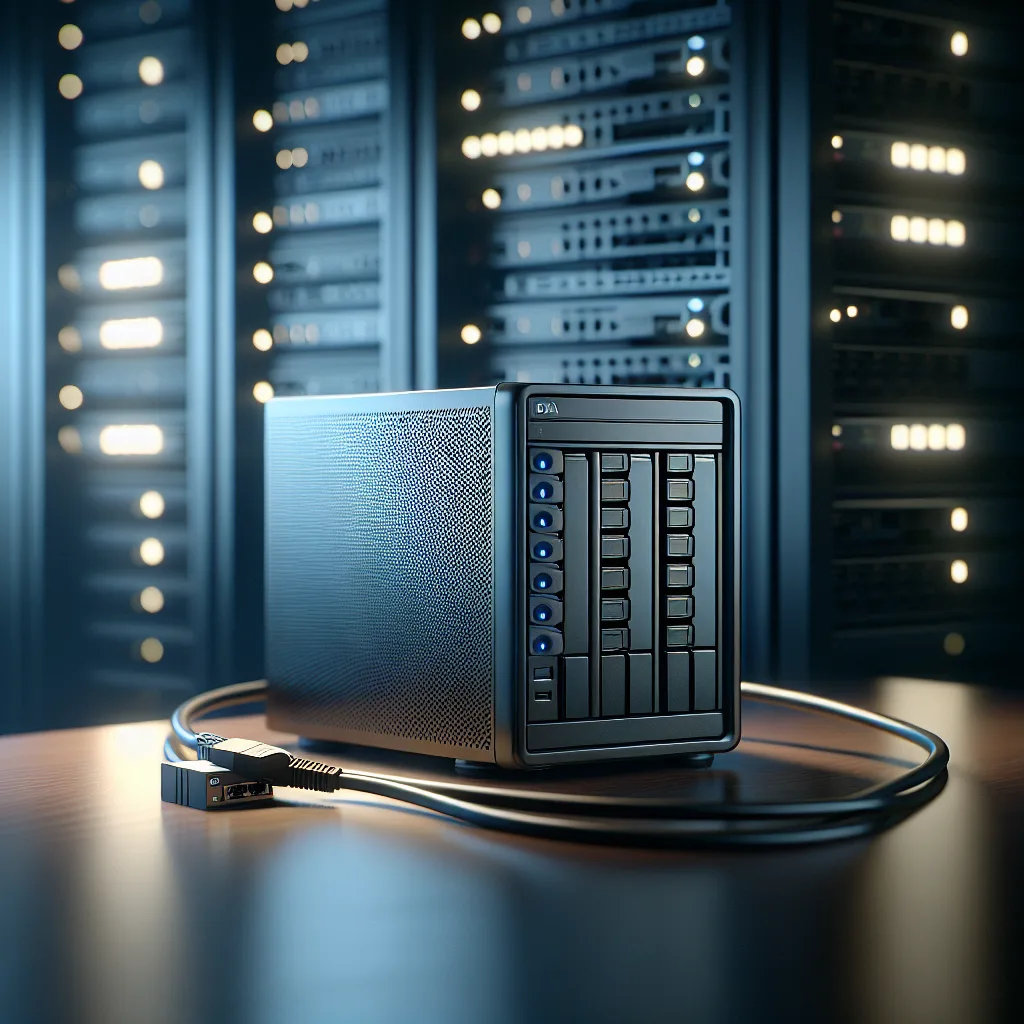Looking for a pre-built NAS or mini PC with 25GbE? Explore the best options for high-speed external storage for your VMware homelab using NFS or iSCSI.
So, you’ve got a powerful homelab setup. Maybe a couple of ESXi hosts humming away, running all sorts of virtual machines. You’ve even upgraded your networking to screaming-fast 25GbE. But there’s a bottleneck, isn’t there? Your VM storage.
You’re probably thinking about how to get all those VMs off the local drives and onto a shared storage solution that can keep up with your 25GbE speeds. The goal is simple: a centralized, fast repository for your virtual machines, probably using NFS or iSCSI.
The first thought is often, “I’ll just build something.” A custom ITX build sounds fun, right? You get to pick every component, from the CPU to the exact 25GbE network card. But let’s be honest, that’s a project. It takes time, research, and dealing with the potential gremlins of component compatibility.
What if you just want something that works? Are there any off-the-shelf options that give you that 25GbE goodness without the headache of a full custom build?
The Pre-Built NAS Route
When you think of network storage, you probably think of Synology or QNAP. These companies have built their reputations on creating user-friendly NAS appliances. For a long time, their focus was on the 1GbE and 10GbE world. But as 25GbE becomes more accessible for prosumers and small businesses, they’ve started to step up.
- QNAP: These guys are often ahead of the curve when it comes to high-speed networking. They offer a range of tower and rackmount NAS units that either come with 25GbE ports built-in or have PCIe slots where you can easily add one of their own 25GbE network cards. Models in their TVS-h series, for example, are often a good place to start looking. They’re powerful enough to handle the demands of a virtualized environment and the ZFS-based QuTS hero operating system is solid for data integrity.
- Synology: Synology has also been adding faster networking options to their higher-end models. You’ll typically be looking at their XS, SA, or UC series for native 25GbE or expansion capabilities. Their DiskStation Manager (DSM) software is famously easy to use, which is a huge plus if you want to set it and forget it. The trade-off is that they can sometimes be a bit pricier for the same level of hardware performance compared to QNAP or a custom build.
The biggest advantage of going with a pre-built NAS is the ecosystem. The software is mature, the hardware is validated, and there’s a huge community and support system if you run into trouble. Setting up an iSCSI LUN or an NFS share for your ESXi hosts is usually just a few clicks in a friendly web interface.
What About Mini PCs?
The world of mini PCs is exploding. Brands like Minisforum, Beelink, and others are packing serious power into tiny boxes. The problem? Finding one with a 25GbE port is like finding a needle in a haystack.
Most of these mini PCs top out at 2.5GbE or maybe 10GbE. The challenge is both physical space and cooling. A 25GbE NIC can run hot and requires a PCIe slot, which most ultra-compact mini PCs just don’t have.
You might find some niche or industrial mini PCs that offer this, but they are often expensive and may not be optimized for use as a storage server. For now, if your heart is set on a small form factor, you’re likely better off looking at a custom build where you can control the chassis and component selection.
The Verdict: Build vs. Buy
So, where does that leave us?
If your main goal is to get a reliable, high-speed storage solution up and running for your VMware lab with minimal fuss, a pre-built NAS from a reputable brand like QNAP or Synology is your best bet.
- Check the Specs: Look for models with at least a quad-core CPU (an Intel Xeon or AMD Ryzen is ideal) and make sure you can install enough RAM (16GB is a good starting point for virtualization).
- Verify the Slot: If it doesn’t have 25GbE built-in, confirm it has a free PCIe 3.0 x8 or x16 slot to accommodate a proper 25GbE card.
- Read the Reviews: See what other homelabbers or small business users are saying about using that specific model for iSCSI or NFS performance.
Building a custom server is still a fantastic option if you want maximum performance for your dollar and enjoy the process of tinkering. But for a simple, stable, and performant external storage solution that just works? The appliance route has never been more appealing. You can unbox it, plug it in, and spend your valuable time managing your VMs, not wrestling with hardware.
